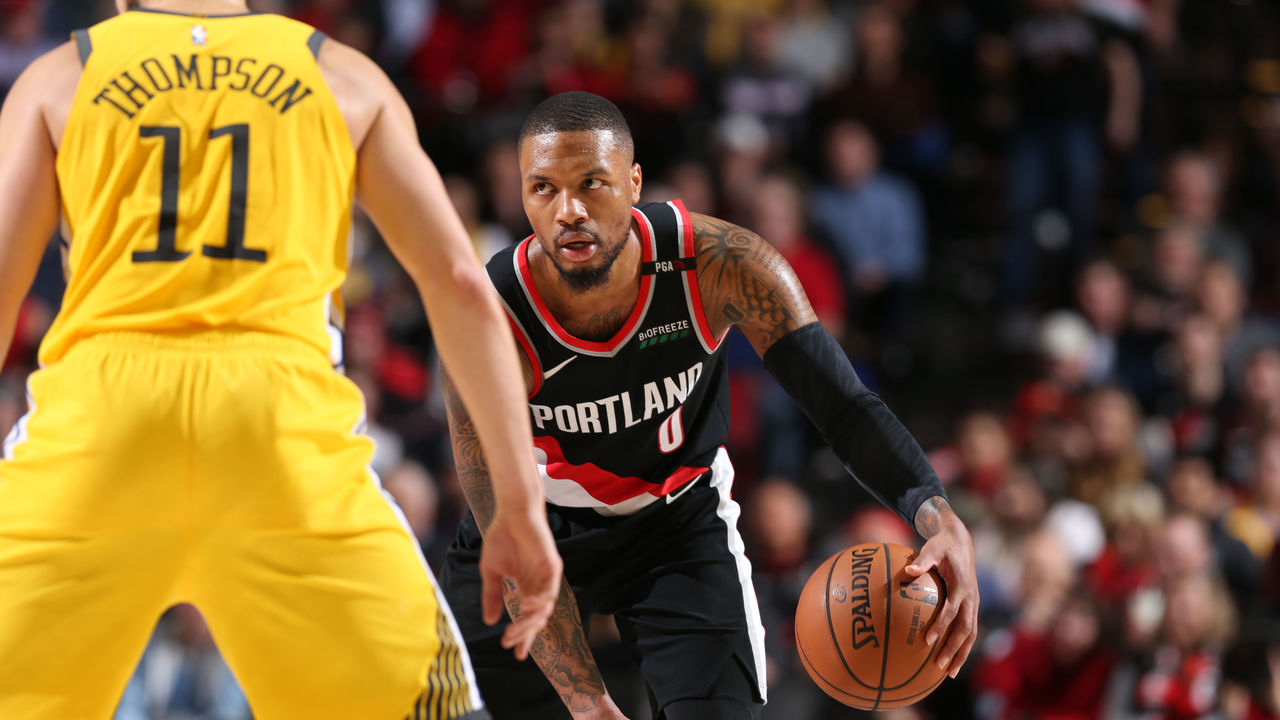The NBA should do away with conference-based All-Star selections
CHARLOTTE -- Rudy Gobert, Luka Doncic, Mike Conley, DeMar DeRozan. Those are just a few of the names that were left off this season's All-Star rosters. Although the omissions were partly a result of the NBA's current abundance of star talent, they were mainly due to a dated selection process.
The 24 All-Stars are still selected based on conference despite the league abandoning the traditional East vs. West All-Star Game format in favor of player-drafted teams in 2018. This 12-from-each system victimizes players from the superior Western Conference and has been doing so for the better part of two decades.
So how would NBAers feel about a hypothetical rule change that sees the league's 24 best players - regardless of conference - granted access to the mid-February showcase? It depends on who you ask.
Pistons big man Blake Griffin has emerged as an All-Star from each conference in his career, but life in the East's lower-middle class may have skewed his opinion.
"I like the whole East-West thing," Griffin told theScore at All-Star Media Day on Saturday. "It gives guys in the East a chance who maybe aren't on a great team or don't have a great record to make the team, and it's better to be there. Sometimes it penalizes guys in the West, but I like the separation."
Damian Lillard, who has experienced the cruelty of the current system first-hand, would welcome such a change, though he's not holding his breath.
"I don't think many people would be mad at that (change), just because of how hard it is to make it in the Western Conference. But you can't take anything away from the guys who made it out of the East, and because it's been that way for so long, I don't really see it changing."
Lillard, a four-time All-Star, was snubbed during the 2015-16 and 2016-17 seasons despite averaging 26 points and six assists during that span. Such is life when only four-to-six West guards can make it out of a group featuring Stephen Curry, Russell Westbrook, James Harden, Klay Thompson, and, at the time, Chris Paul and Kobe Bryant.

Lillard was fortunate enough to overcome that abundance of star talent. A lot of consistently great West players, who would be surefire All-Stars out East, never do. Just ask Mike Conley.
"The players really respect me and every one of them (is) like, 'Man, I can't believe you haven't been an All-Star. You should be one. You should have been one this year,'" the Grizzlies point guard told reporters in Charlotte, where he'll take part in Saturday's Skills Challenge but not Sunday's game. "It's the same thing over and over. But it's cool to know they at least recognize it."
Then there are the career-year guys, basketball's equivalent of one-hit wonders. Good players in the midst of the season of their lives, they are hostages of the system. Take Tobias Harris, for example, who averaged 20.9 points, 7.9 rebounds, and 2.7 assists on 49-43-87 shooting in 55 games for a winning Clippers team.
Had Harris produced at the same level in Philadelphia - where the 76ers forward now resides after a deadline-week trade - over the course of the season, he would've been an All-Star lock. And with no East vs. West format in the game itself, the league wouldn't have to worry about All-Star related logistics after such an inter-conference trade.
Making matters worse this season, the only injury replacement required was in the East, where Pacers guard Victor Oladipo suffered a season-ending quad injury. The league's selection process mandates that an East All-Star can only be replaced by a fellow East player despite conferences having no bearing on Sunday's game, meaning the inferior conference ended up with 13 selections compared to the West's 12.
When asked about the potential for change at last year's All-Star festivities, commissioner Adam Silver mentioned one reason for maintaining the status quo is that the coaches voting for reserves compete against, and therefore watch, the teams and players within their own conference more often.
But the NBA's schedule is more balanced than any other major North American sports league, with teams playing multiple games against inter-conference rivals each season, and coaches are likely watching enough basketball to determine which players are All-Star worthy, regardless of whether they compete against them two, three, or four times a year.
It's often said that All-Star Weekend is for fans and sponsors, and most in attendance at Saturday's open Media Day stressed that they show up to events like this mostly for their young children and to catch a glimpse of the LeBrons, Currys, and KDs of the world. In other words, they couldn't care less whether it's Khris Middleton or Rudy Gobert earning one of the final spots.
But All-Star Weekend is also supposed to be a celebration of the game's top players in a given season, and for some NBAers, contracts and endorsements will look a little shinier with an All-Star title attached to them. Let the best players earn those titles.
As Timberwolves center Karl-Anthony Towns reminded us on Saturday: "You never know when you'll get another chance to be in the All-Star Game."